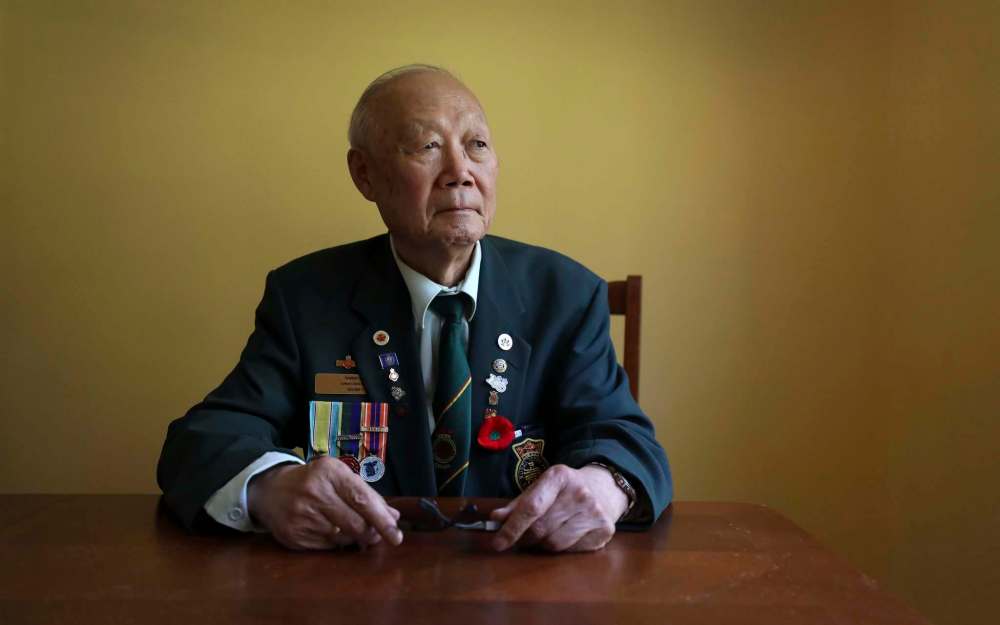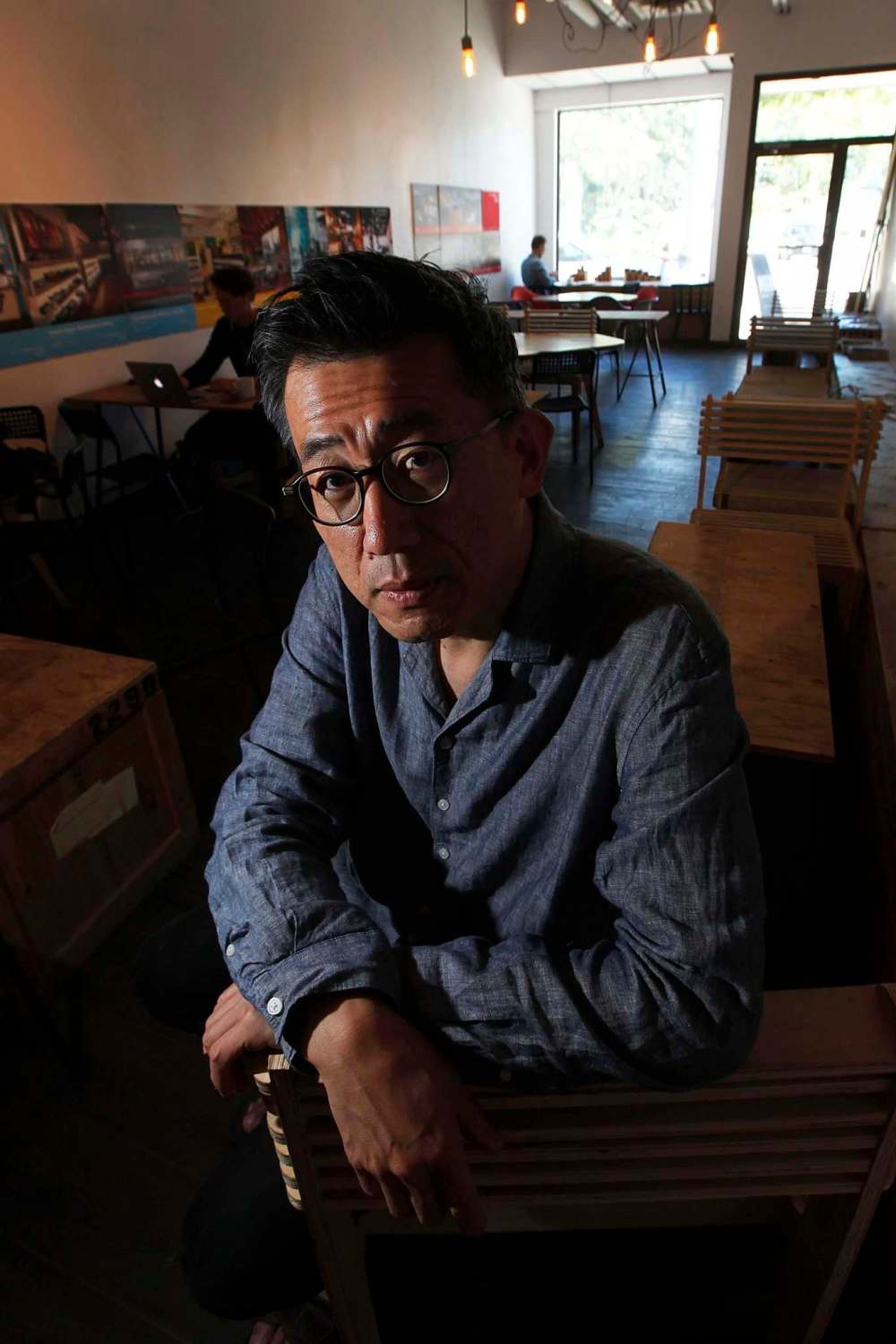New optimism for Korean Manitobans
Singapore summit creates glimmer of hope for local expats
Advertisement
Read this article for free:
or
Already have an account? Log in here »
To continue reading, please subscribe:
Monthly Digital Subscription
$1 per week for 24 weeks*
- Enjoy unlimited reading on winnipegfreepress.com
- Read the E-Edition, our digital replica newspaper
- Access News Break, our award-winning app
- Play interactive puzzles
*Billed as $4.00 plus GST every four weeks. After 24 weeks, price increases to the regular rate of $19.95 plus GST every four weeks. Offer available to new and qualified returning subscribers only. Cancel any time.
Monthly Digital Subscription
$4.99/week*
- Enjoy unlimited reading on winnipegfreepress.com
- Read the E-Edition, our digital replica newspaper
- Access News Break, our award-winning app
- Play interactive puzzles
*Billed as $19.95 plus GST every four weeks. Cancel any time.
To continue reading, please subscribe:
Add Free Press access to your Brandon Sun subscription for only an additional
$1 for the first 4 weeks*
*Your next subscription payment will increase by $1.00 and you will be charged $16.99 plus GST for four weeks. After four weeks, your payment will increase to $23.99 plus GST every four weeks.
Read unlimited articles for free today:
or
Already have an account? Log in here »
Hey there, time traveller!
This article was published 13/06/2018 (2809 days ago), so information in it may no longer be current.
At 81, Winnipeg’s Harry Lee remembers living in Korea before war split it in two. He’s seen many peace deals brokered and broken in recent decades and developed a healthy skepticism.
On Tuesday, after a historic meeting of the leaders of North Korea and the United States, Lee and some other Korean Manitobans were feeling optimistic for the first time.
“This is quite different,” said the Korean Seniors Association of Manitoba president and an active member of the Korea Veterans Association of Canada. Lee said he has no illusions about Kim Jong Un giving up his nuclear weapons or U.S. President Donald Trump convincing him to do so. But, the fact the heads of state for the U.S. and North Korea met for the first time on the world stage, makes Lee hopeful.

“Something is changing,” Lee said. Five years ago, he was thanking Korean War vets at the 60th anniversary ceremony marking the Korean War ceasefire. Without them, Lee said he would have grown up starving, sleeping on a mud floor instead of a warm bed, without basic human rights and living under a repressive regime. Instead, he lived in South Korea, a democracy that became an economic powerhouse.
Being at the summit in Singapore and surrounded by advanced, developed economies may convince Kim his “hermit kingdom” needs to open up, said Lee, who immigrated to Canada nearly 50 years ago.
“Kim Jong Un realizes he can’t hold on too long to his regime because the world around him is different,” Lee said. “He’ll realize he cannot survive continuing to depress his people.” Lee doesn’t think Trump will change Kim. Both leaders are motivated by self-interest and survival, he said. China, Lee said, plays more of a role in North Korea opening up — which will benefit its people and peace in the Korean Peninsula.
“Some of the people in North Korea have a cellphone from China. They know what’s going on beyond their territory in North Korea. That’s the bottom line. They cannot isolate them anymore. The world is smaller and more competitive.”
For a Winnipegger born in Korea after it split in two, the Trump-Kim summit offered a glimmer of hope.
“Generally speaking, it’s better than nothing,” said Jae-Sung Chon, 50.
“I think a lot of Koreans are thinking that,” said Chon, who visited South Korea last fall. “A lot of people are hopeful… regardless of the characters involved. People are observing it in a very positive light,” said the University of Manitoba instructor in the architecture faculty, who runs MAKE Coffee and Stuff, which showcases the work of local designers.
Chon said people of his generation have never known a unified Korea. “Because it’s been locked down, there’s been no conversation — no back and forth — for 60 years,” he said. “It’s so remote. An encounter with North Korea is kind of a distant event, whereas my father’s generation had direct encounters. Our generation is a little hands off,” Chon said. North Korea seems far away, but the threat of its weapons is too close and hangs over the heads of people in the South, he said.
“If there’s any kind of abrupt warfare or hostility — if that happened — there’s no point trying to escape or get out,” Chon said.
“It’s doomsday. It’s immediate,” he said. “They have to accept the fact that it’s not going to matter if you try to avoid it.”
In South Korea last fall, he got the sense there was a little bit of anxiety, but a prevailing attitude of “live your life,” he said.
“The sentiment was ‘If it’s going to happen, live in the present,’” Chon said.
If there’s a remote chance that people could live without that constant threat, they’ll take it, he said.

“My friends here and back in Korea are hopeful and positive.”
carol.sanders@freepress.mb.ca

Carol Sanders
Legislature reporter
Carol Sanders is a reporter at the Free Press legislature bureau. The former general assignment reporter and copy editor joined the paper in 1997. Read more about Carol.
Every piece of reporting Carol produces is reviewed by an editing team before it is posted online or published in print — part of the Free Press‘s tradition, since 1872, of producing reliable independent journalism. Read more about Free Press’s history and mandate, and learn how our newsroom operates.
Our newsroom depends on a growing audience of readers to power our journalism. If you are not a paid reader, please consider becoming a subscriber.
Our newsroom depends on its audience of readers to power our journalism. Thank you for your support.


